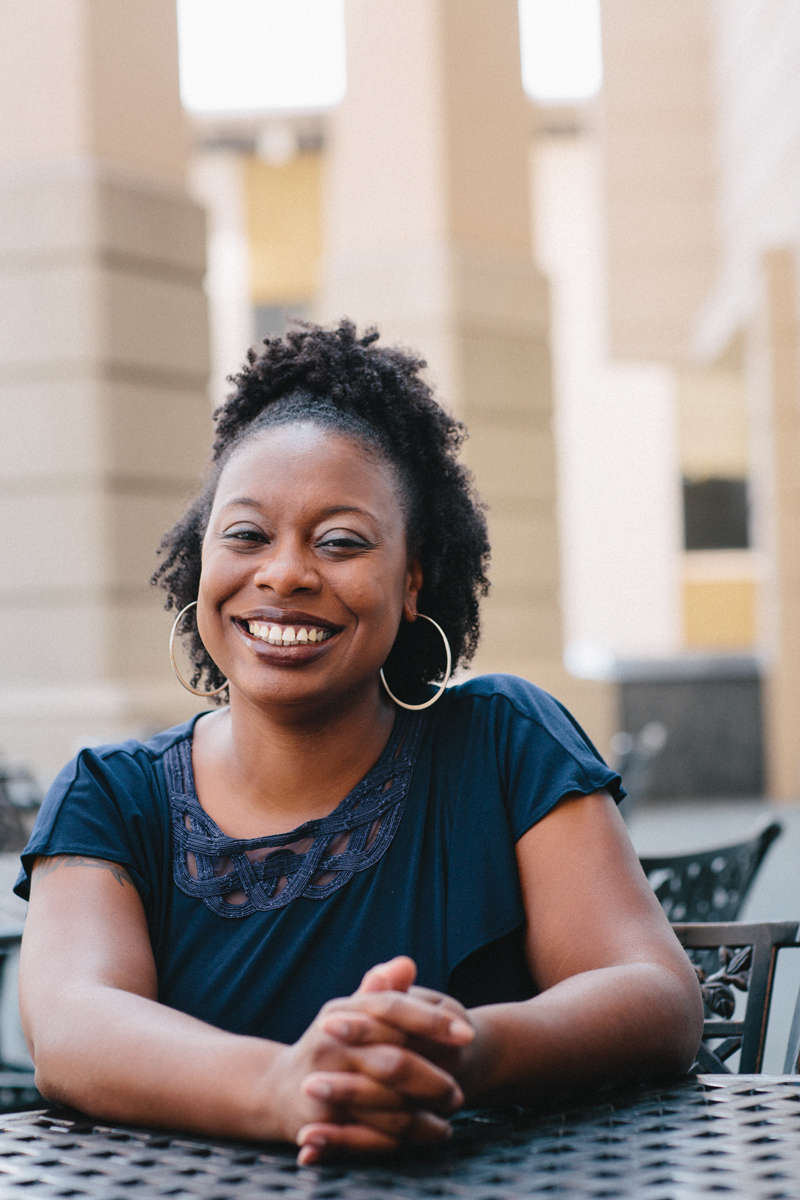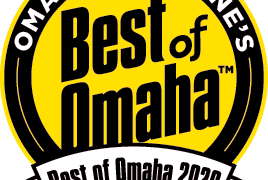She never imagined that checking a small box on a job application would have such a big impact.
Jasmine L. Harris was trying to turn her life around from a couple of misdemeanors as a young adult. She learned that answering “yes” to the question of criminal charges in her background put up barriers to employment.
“All I heard was, ‘We can’t hire you’ for almost two years,” Harris says. “And that was with misdemeanors. Someone with a felony on their record doesn’t stand a chance.”
With only her family in her corner and a young son for whom she was now responsible, Harris determined she was going to get her life on track and make a better way for others with similar life experiences.
“I had to get a grip on my life because I was going nowhere fast,” says Harris, who earned a bachelor’s degree in biology from the University of Nebraska-Omaha, then a Master of Public Health from the University of Nebraska Medical Center. “If I didn’t make drastic changes, I was going to be dead or in jail.”
With her newfound lease on life, Harris became a health educator and tobacco prevention coordinator for Creighton University School of Medicine’s Clinical Research Office. She also served as civic engagement committee chair for the Urban League of Nebraska Young Professionals, where she focused on advocacy and awareness of criminal justice issues.
Her passion became helping those who wanted to move beyond past mistakes and find someone to believe in their future. That passion led Harris to co-found Waymaker LLC, an organization that motivates women and girls to overcome setbacks from being involved in the criminal justice system—the kind of service Harris could have used when she was climbing her way back.
“We focused on making a way of life—creating second chances—for women and girls who were having similar experiences as mine,” says Harris, who focused much of her work in North Omaha where she grew up. “A lot of times, all someone needs is a second chance.”
Harris was the driving force behind efforts such as Black and Brown Legislative Day, when people of color were hosted at the state capitol to learn about the legislative process and register to vote. She also helped push for legislation that would remove the “Criminal History” section from an application for any job in the state—a bill that didn’t make it off the legislative floor.
Harris then turned her attention to volunteering with a new Nebraska organization called Defy Ventures, a group that works with incarcerated and previously-incarcerated people to help them land jobs or become business entrepreneurs.
She deployed programs such as “CEO of Your New Life,” which focuses on character development, employment readiness, and entrepreneurship training. Defy helps people in post-release develop a new business pitch in a “Shark Tank”-like competition—with the idea that the new business will eventually hire others who have been in jail.
“The main goal is to help people, upon release, be ready for gainful, meaningful employment,” says Harris, who landed a full-time position as Defy’s post-release program manager. “We teach how to talk about your incarceration in a way that doesn’t turn off employers or cause them to pity you.”
Harris, awarded the Omaha NAACP Freedom Fighter Award in 2017 and named one of the Ten Outstanding Young Omahans by the Omaha Jaycees, knows there might be opportunity to help more people in a bigger city. But the “love-hate relationship” she had with her hometown when she was a teen is now all love. She is motivated by the endless opportunity she sees here.
“I came back here because I see the potential in Omaha,” Harris says. “I see people who sincerely want to help and are making the change. I want to be an integral part of that.”
Visit defyventures.org for more information.
This article was printed in the October/November 2018 edition of B2B. To receive the magazine, click here to subscribe.














